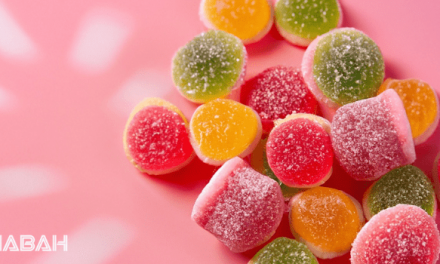As a muslim consumer who values transparency and wants to make informed choices, I was curious to delve into the halal status of Haribo. In this article, I will uncover the truth behind Haribo’s halal certification, providing you with the knowledge you need to confidently enjoy these delectable treats.
What Muslims Need to Know
Haribo, founded in 1920 in Germany, is one of the most iconic and globally recognized brands of gummy candy. However, there has been ongoing confusion about whether Haribo’s sugary gelatin-based treats are permissible to eat for Muslims who adhere to a halal diet.
This article will examine:
- The key halal dietary restrictions according to Islamic law
- Haribo’s use of animal-derived gelatin ingredients
- The availability of halal-certified Haribo products
- Perspectives on consuming Haribo gummies as a Muslim
Ultimately, the debate centers around whether Haribo’s standard gelatin candies should be considered halal or haram.
“Haribo is enjoyed by children and adults all around the world. However, many Muslims have wondered whether our products are suitable for their diet.” – Haribo Website
Background on Halal Food Requirements
For a food to be certified halal, it must comply with Islamic dietary laws as dictated by the Quran. Here are some of the key requirements:
- Cannot contain pork or pork byproducts – Pork and pork-based ingredients are strictly prohibited according to Islamic law.
“Quranic verses prohibit the consumption of pork meat and swine by-products.”
-
Meat must come from animals slaughtered according to Islamic ritual – For meat to be halal, the animal must be slaughtered by a Muslim who invokes the name of Allah.
-
Cannot contain alcohol – Any food or beverage containing alcohol is haram or forbidden.
“Intoxicants like alcohol are considered both impure and harmful in Islam.”
- Animal-derived ingredients must come from halal slaughtered animals – This applies to ingredients like gelatin, which may be derived from pigs. The animal must be slaughtered in a halal manner.
Adhering to these restrictions allows Muslims to eat in accordance with their religious beliefs.

Haribo’s Use of Animal Gelatin
Most Haribo products contain gelatin, which acts as the gummy base that gives the candies their chewy texture. Gelatin is derived from the collagen inside animal bones and skins.
According to Haribo’s website:
“Gelatine for our products is sourced from cows and pigs.” Haribo FAQ
The source of the gelatin is important for determining if it meets halal standards. Here are the key considerations:
-
Gelatin from pigs is automatically not halal due to the restriction on pork products.
-
For gelatin from cattle to be halal, the cattle must be slaughtered according to Islamic ritual and prayers.
-
Haribo has not provided any certification or confirmation that their animal gelatin ingredients come from halal slaughtered sources.
Without transparency from Haribo on the sourcing of the gelatin, Muslims who follow a halal diet must avoid consuming products containing standard Haribo gelatin.

Availability of Halal-Certified Haribo Products
While Haribo’s regular gummy products sold in the UK do not have halal certification, there are some alternatives for Muslims seeking Haribo candies that meet dietary restrictions:
-
Imported halal-certified Haribo – Some international vendors import and sell Haribo products that are certified halal:
“Certain outlets in the UK import Haribo from Pakistan and Turkey that have been approved as halal.”
-
Haribo’s halal assortment – Haribo created this special assortment free of animal gelatin specifically for the halal market:
“Our halal assortment is made with plant-based pectin and certified halal.” – Haribo FAQ
So Muslims who want the familiar Haribo flavor do have some halal options available, though they may need to visit specialized shops or order the halal assortment online. Having certifiably halal Haribo provides assurance the products adhere to Islamic dietary laws.
Perspectives on Consuming Haribo Gummy Bear
Within the Muslim community, there are differing perspectives on whether standard Haribo gummies without halal certification can be considered permissible:
-
Completely forbidden – Some Islamic authorities argue Haribo’s regular gummies should be avoided entirely since the gelatin source is in doubt:
-
Acceptable due to processing – Others believe that because the gelatin undergoes such extensive processing, it is sufficiently transformed to be halal:
“Some contend that the chemical processing of gelatin removes impurities.”
-
Debatable as an “intoxicant” – There is also debate around whether gelatin-based gummies could be considered an intoxicant, which are forbidden in Islam.
Overall, the general consensus seems to be that standard Haribo products are risky or doubtful for halal consumers unless certified. But some Muslims are more lenient in their interpretation of gelatin’s permissibility.
Are Haribo Halal – FAQ
Yes, Haribo offers a range of halal certified products.
What is the definition of halal?
Halal is an Arabic word that means permissible or lawful according to Islamic law. It specifies that certain foods and products are permissible for consumption by Muslims.
Which Haribo products are halal certified?
Haribo offers a variety of halal certified products, including their popular gummy bear range such as Goldbears, Starmix, and Tangfastics, among others.
How can I identify halal Haribo products?
You can look for the halal certification logo on the Haribo packaging. It ensures that the product meets the requirements set by the halal certification body.
Are all Haribo gummy bears halal?
Not all Haribo gummy bears are halal. Only the specific variants that are halal certified can be considered halal. It is important to check the packaging and look for the halal certification logo.
Are Haribo products made in Turkey halal?
Haribo products made in Turkey are halal, as they are produced under strict halal guidelines and certified by the appropriate authorities.
Does Haribo use pork gelatine in their products?
No, Haribo does not use pork gelatine in their halal certified products. They use alternatives such as bovine gelatine.
Can I check the ingredient list to ensure Haribo products are halal?
Absolutely. You should always check the ingredient list on Haribo products to ensure they meet your halal requirements. Look for any non-halal ingredients that might be listed.
Where are Haribo products manufactured?
Haribo products are manufactured in various countries, including Germany, Turkey, and the United States. However, it is important to look for the halal certification logo on the packaging to ensure the product is halal.
Are there any alternatives to Haribo gummy bears that are halal?
Yes, there are other brands and manufacturers that offer halal gummy bear options. You can explore halal food stores or online platforms to find alternatives to Haribo gummy bears.
Conclusion
In summary, there is ongoing debate within the Muslim community about whether regular Haribo gummy products without halal certification can be permissible to eat.
The key considerations are:
- Haribo’s lack of transparency regarding the sourcing of their gelatin ingredients
- Uncertainty whether the animals are slaughtered in a halal manner
- Differences in opinion on whether the chemical processing of gelatin makes it halal
For Muslims seeking clarity:
- Looking for halal certification or the halal Haribo assortment provides assurance of compliance with Islamic law
- Avoiding non-certified candies containing animal gelatin is the most conservative approach
Ultimately, Haribo could resolve the confusion by providing definitive confirmation about where their standard gelatin is sourced from and how the animals are slaughtered.
Until greater transparency is provided, Muslim consumers interested in enjoying Haribo’s signature gummy treats may wish to verify halal status before consuming.





